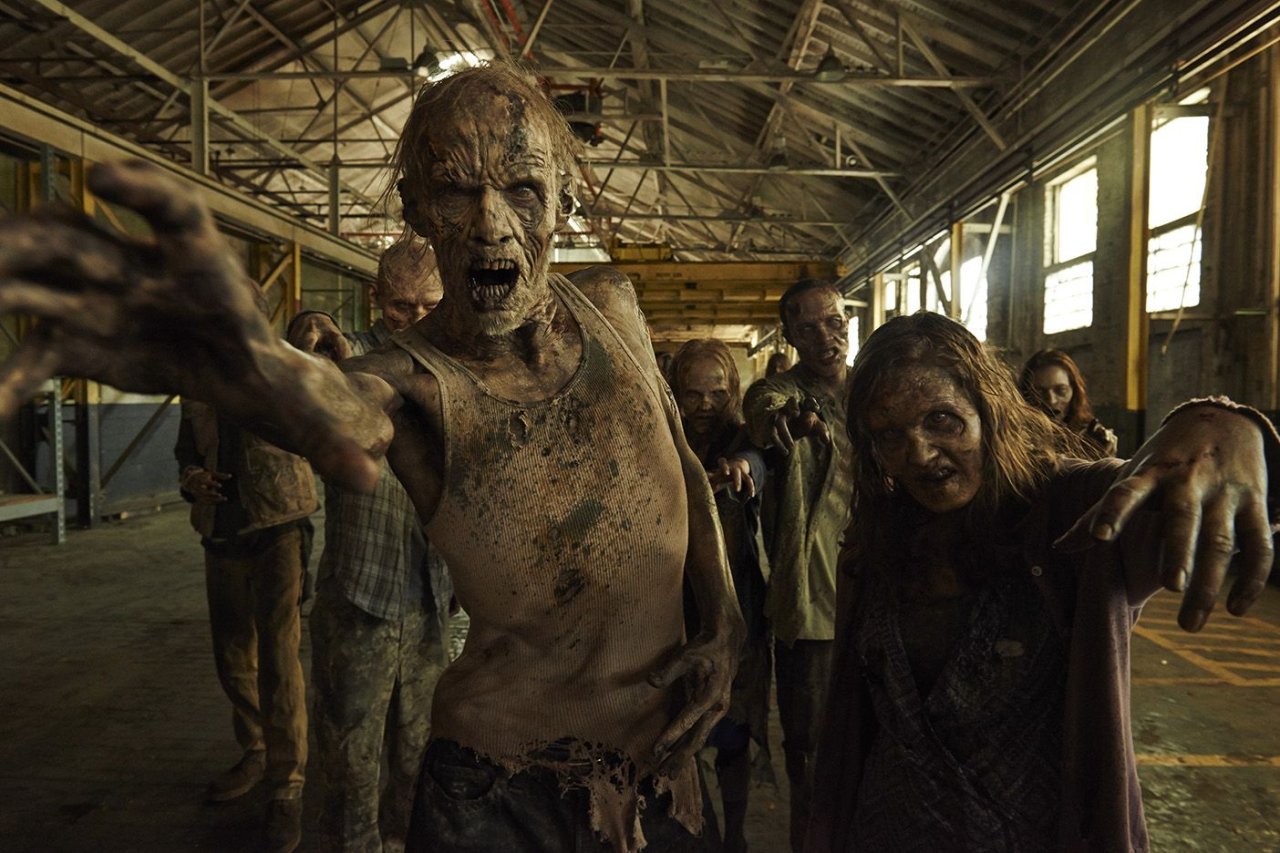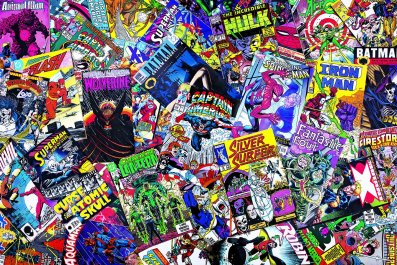Walkers, walls and crossbow crusaders. All of humanity bifurcated into a good-vs.-evil, winner-take-all main event while a greater existential threat—the zombie apocalypse—looms. Add to that a callous indifference on the part of showrunners to killing off (and then occasionally resurrecting) a beloved main character. As the October 22 Season 8 premiere of The Walking Dead approaches, we wonder if AMC's megahit is not Game of Thrones with a more penurious per-episode budget.
The Walking Dead premiered on Halloween night, 2010, and has since become the most-watched series in cable television history. Five months later, Game of Thrones made its debut on HBO and has since whacked The Sopranos as the most-watched show ever on premium cable. For the first few years of their existence, the shows seemed to have little in common besides their massive audiences and roots in fantasy.
Dead, after all, was set in a contemporary, post-apocalyptic American South. Thrones was set in the fictional land of Westeros, which bears a passing resemblance to Britain, in an age of iron. Thrones was rife with clandestine alliances, brothels, interwoven royal lineages, giants, dragons and Dothraki. Dead promulgated a far simpler plotline: Stay together and don't get bitten.
Superficial links existed. How many other shows feature a crossbow, the weapon of choice for Dead 's heroic Daryl (Norman Reedus) and a toy for Thrones ' sadistic boy king Joffrey (Jack Gleeson)? And yes, a murder tool for Joffrey's impish uncle Tyrion (Peter Dinklage).
Glenn (Steven Yeun), one of Dead 's most popular characters, fell into a zombie mosh pit at the end of one episode only to re-emerge in the next unscathed (are there vegan zombies?), while multiple Thrones characters have overcome stabbings, drowning and greyscale, only to return. Lord of Light? More like deus ex machina.
In the past two seasons, however, the shows have begun to approach a point of convergence, albeit from opposite directions. Since Season 6, Dead has promoted a malevolent gang of fascists, the Saviors, as the most direct threat to Sheriff Rick and his posse, while relegating "walkers" (i.e., zombies) to a relative supporting role. Meanwhile, across the Narrow Sea, the Lannisters have brokered a truce with the Targaryen-Stark alliance, while Thrones' zombies, the white walkers, are sweeping down toward Winterfell like a Category 5 hurricane (or American politics).
The comparisons are manifold. Looking for a merciless ruler with a thirst for inflicting pain? Negan, meet Cersei (one man's Lucille is another woman's Mountain, after all). How about a reluctant but resolute leader who is also a bastion of integrity? Sheriff Rick and Jon Snow. Hulking gingers fighting for the good guys? Sergeant Abraham and Tormund. Bad ass, blade-wielding heroines? Michonne, meet Brienne of Tarth.
At their cores, both Dead and Thrones have been distilled into a triad of fascists vs. freedom fighters vs. the undead. The last group is a relative force of nature, an implacable juggernaut that is not vulnerable to desertions or betrayal but is also incapable of heroism. Who will win out? Will an alliance be forged between each show's two human factions before it is too late? Forget winter; for both series, Season 8 is coming.
















